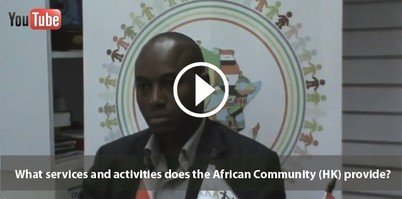A Helpline for Refugees
Hong Kong has hundreds of asylum-seekers who literally live in limbo as they await decisions on their fate. They cannot work or attend school, and their most precious commodity is information.
Hong Kong has hundreds of asylum-seekers who literally live in limbo as they await decisions on their fate. They cannot work or attend school, and their most precious commodity is information.
The refugees are keen to find out more about the legal issues relating to their cases and how to look after daily concerns in a strange city, but until recently, that information was scattered among different non-profit groups. Now a project by HKU law students has helped to pull all the strands together.
The Hong Kong Refugee Information Channel was launched on YouTube in 2012 and carries 41 short videos that offer simple, accessible explanations on everything from how to get free legal advice to how to get medical care. The transcripts have been uploaded, too, so viewers can use YouTube's translation service to access the information in more than 40 languages.
William Fitzgerald, who is doing a part-time LLM in Human Rights, has steered the project with fellow students Andres Mora and Nicole Yan. He was inspired by his own encounters with refugees.
"The established refugees know how the city works and how to get the things they need. But new arrivals are heavily dependent on knowing another refugee or getting to organisations that could help them, which takes time and also money if they're travelling on the MTR," he said. "There was good information available at various places but it was not all in one place."
He and his team brainstormed with several refugees on the kinds of issues they felt should be covered. The goal was to tailor the channel to their needs.
"One thing that was not among the first things I had thought of was counselling services, but now I've learned," he said. "There's a big problem with depression and other issues among refugees."
The refugees can access the website at free computers in such places as NGO offices and public libraries. The students have also promoted the channel to them through a leaflet distributed at NGO offices and messages on Facebook, Twitter and Google+.
In addition to the input from refugees, they also received help from an NGO, Vision First, which provided advice and office space for meeting with the refugees and carried a blog about the YouTube channel on their website.
"We hope that by providing this important information on a friendly platform, we will make refugees' lives easier," William said.


